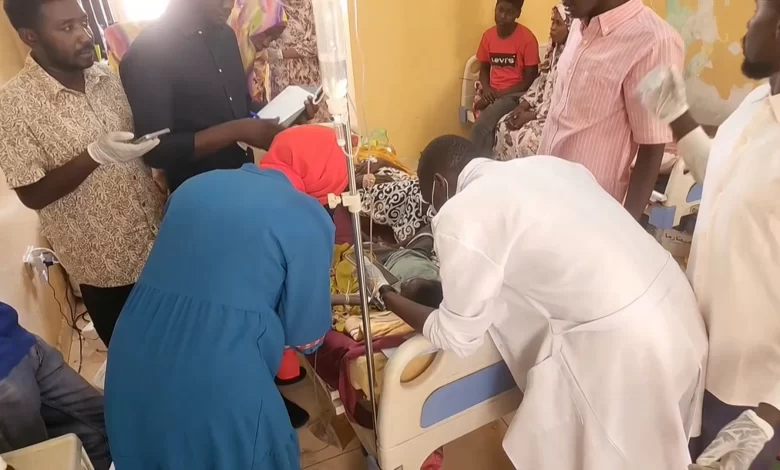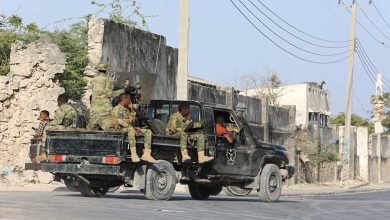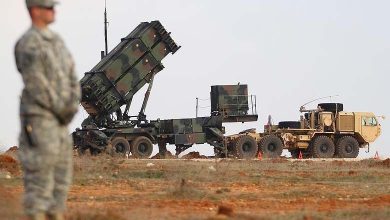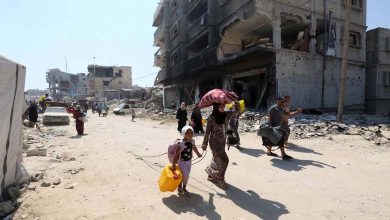As fighting escalates… The collapse of the healthcare system in Sudan and the closure of hospitals

As the battle for control of Sudan enters its third week, healthcare services are rapidly unraveling in the capital Khartoum, in a bleak outcome to brutal fighting that has raised fears the conflict could turn into a wider humanitarian crisis, and the Sudan Doctors Association warned of the complete collapse of the healthcare system days ago.
The World Health Organization says: Hospitals have been bombed and two-thirds of them have closed in Khartoum, while officials said that more than a dozen health care workers have been killed and “hidden victims” are dying of the disease as basic medical services have become scarce, according to Dr. Abdullah Atiyah, Secretary General of the Doctors Syndicate.
He said, “We get a lot of calls every day:” Where do I go? “”These are questions that we cannot answer.”
Collapse of the health system
Fighting broke out on 15 April between a paramilitary group called the Rapid Support Forces (RSF) and the Sudanese Army, killing more than 500 people and injuring thousands more, according to the New York Times, which reported that Africa’s third-largest country was thrown into disarray as the ceasefire declaration collapsed one by one.
Millions of civilians were still trapped, the U.S. newspaper reported, and a recent truce to allow civilians to flee was due to expire at midnight on Sunday. Although the RSF said it would extend a humanitarian ceasefire for another three days, renewed fighting was reported in the capital.
The Sudanese army agreed in a statement on Sunday to extend the truce but accused the RSF of breaking the truce and occupying a hospital. The RSF said the army was looting medical supplies.
In response to the deteriorating situation, the UN Secretary-General’s Office said it would “immediately” send Martin Griffiths, Under-Secretary-General for Humanitarian Affairs and Emergency Relief Coordinator, to Sudan.
Escape to Egypt
“The scale and speed of what is happening is unprecedented in Sudan,” Stéphane Dujarric, the secretary-general’s spokesman, said in a statement.
According to the US newspaper, other countries hastened to evacuate their citizens by any necessary means as the situation deteriorated. The British government announced on Sunday that Britain had flown more than 2,122 people by Saturday on 21 flights, and another flight is scheduled to start from Port Sudan in eastern Sudan on Monday. Americans have fled in long convoys of buses, trucks, and cars to Egypt to the north or Port Sudan, where they hope to board ships to Jeddah, Saudi Arabia.
The State Department said Sunday that a second convoy of U.S. citizens arrived in Port Sudan, bringing the number of Americans evacuated to just under 1,000. Fewer than 5,000 Sudanese citizens have sought U.S. government assistance through the Crisis Response Web site, which was created for Americans and their families. About 16,000 Americans live in Sudan, many of whom have dual citizenship, the department said.
The U.S. newspaper said the Sudanese Ministry of Health is nowhere to be found. The Doctors Syndicate said it had not received any support. Witnesses and officials say the fighters used the health facilities as defensive positions, and in addition, the paramilitary forces occupied the national laboratory, officials said.
Dr. Atiyah said samples of diseases like malaria or tuberculosis could become a weapon in the wrong hands.
He added that uncollected bodies in morgues and on the streets were another concern, while the doctors’ union later said in a statement that the number of corpses scattered in the streets was increasing, causing an “environmental disaster”.
Doctors Flee
Hundreds of doctors have fled, and there are rumors that fighters from the Rapid Support Forces have kidnapped medics and forced them at gunpoint to treat their wounded comrades, the paper reported.
While the abductions have not been confirmed, Dr. Atiyah said, dozens of members of the Sudan Doctors Syndicate are missing, as a shortage of healthcare workers has left hospitals with barely enough staff to deal with them.












